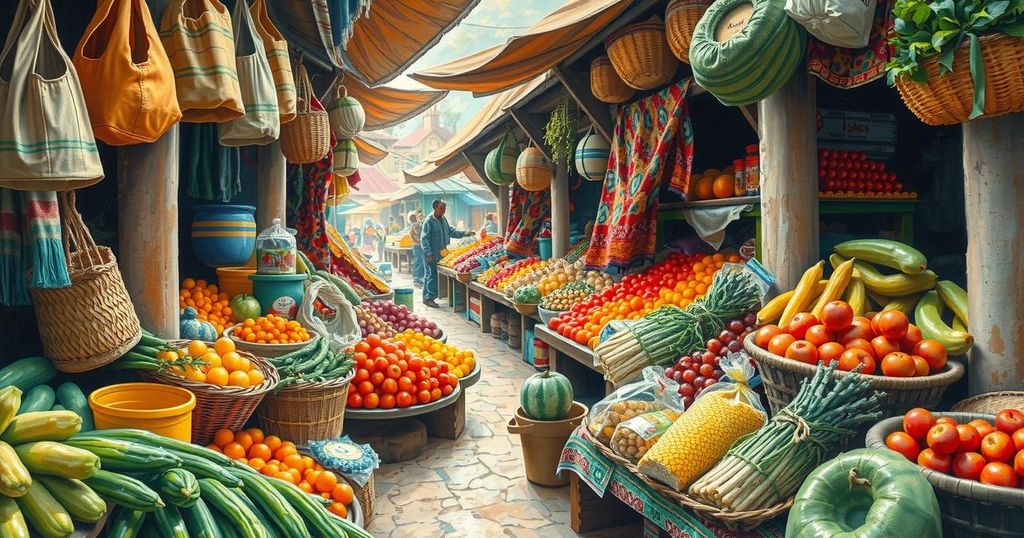Business
economics
AFRICA, AGRICULTURE, BUSINESS TECH, CAPE TOWN, CASEY SPRAKE, DURBAN, ECONOMIC JUSTICE AND DIGNITY, ECONOMY, FOOD INFLATION, GAUTENG, INFLATION, JOHANNESBURG, MALCOLM LIBERA, NORTH AMERICA, PIETER ENGELBRECHT, PMBEJD, SHOPRITE, SOUTH AFRICA, UNITED STATES, WHITE HOUSE
Marcus Li
0 Comments
Grocery Prices Soar in South Africa: 2025 Trends and Concerns
Gauteng is the most expensive province for groceries in 2025, with Johannesburg having the highest costs. A standard food basket averages R5,313.22, reflecting a slight annual increase. Factors contributing to rising prices include dependency on imports and potential VAT hikes. While Cape Town has the lowest costs among major metros, high grocery prices continue to affect South Africans.
Recent findings reported by Malcolm Libera in Business Tech reveal that Gauteng remains South Africa’s most expensive province for groceries in 2025. Johannesburg has the highest costs, with a household food basket, which includes 44 essential items, reaching R5,313.22 in February 2025. This marks a modest annual increase of 0.7%, although food inflation is a pressing issue, as 27 tracked items experienced price hikes, with five reflecting double-digit inflation.
The rise in grocery prices can be attributed to multiple factors. According to economist Casey Sprake from Anchor Capital, South Africa’s dependency on food imports renders it susceptible to fluctuations in the global market. Additionally, potential trade policy changes in the United States, particularly with Donald Trump’s presidency, could affect costs through tariffs and economic volatility impacting the rand’s strength.
Another area of concern is a possible increase in Value-Added Tax (VAT). Although the government has postponed any decisions, Shoprite CEO Pieter Engelbrecht cautioned that a VAT increase could adversely affect food affordability, particularly as businesses face challenges from power outages and supply chain issues.
Grocery prices differ across regions, with Johannesburg residents confronting the highest costs—R5,446.07 for a standard food basket, R132.85 above the national average. Cape Town has the lowest at R5,250.75, while Durban’s basket costs R5,254.06, even after a slight reduction from the previous year. Though food inflation has moderated since its peak in 2024, many South Africans still grapple with high prices.
To summarize, Gauteng, particularly Johannesburg, leads in grocery prices for 2025, heavily influenced by import dependency and global market conditions. Residents face challenges from potential VAT increases and ongoing supply chain disruptions. As food costs remain high, smart shopping strategies, such as comparative pricing and bulk purchasing, are advised to help alleviate financial pressures on households.
Original Source: www.foodandhome.co.za




Post Comment